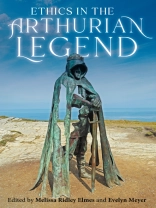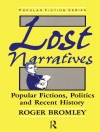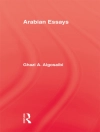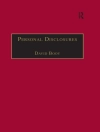An interdisciplinary and trans-historical investigation of the representation of ethics in Arthurian Literature.
From its earliest days, the Arthurian legend has been preoccupied with questions of good kingship, the behaviours of a ruling class, and their effects on communities, societies, and nations, both locally and in imperial and colonizing contexts. Ethical considerations inform and are informed by local anxieties tied to questions of power and identity, especially where leadership, service, and governance are concerned; they provide a framework for understanding how the texts operate as didactic and critical tools of these subjects.
This book brings together chapters drawing on English, Welsh, German, Dutch, French, and Norse iterations of the Arthurian legend, and bridging premodern and modern temporalities, to investigate the representation of ethics in Arthurian literature across interdisciplinary and transhistorical lines. They engage a variety of methodologies, including gender, critical race theory, philology, literature and the law, translation theory, game studies, comparative, critical, and close reading, and modern editorial and authorial practices. Texts interrogated range from
Culhwch and Olwen to
Parzival,
Roman van Walewein, Tristrams Saga, Sir Gawain and the Green Knight, and Malory’s
Morte Darthur.
As a whole, the approaches and findings in this volume attest to the continued value and importance of the Arthurian legend and its scholarship as a vibrant field through which to locate and understand the many ways in which medieval literature continues to inform modern sensibilities and institutions, particularly where the matter of ethics is concerned.
İçerik tablosu
Foreword – Jane Gilbert
Acknowledgements
‘Introduction’ – Melissa Ridley Elmes and Evelyn Meyer
Arthurian Ethics before the Pentecostal Oath: In Search of Ethical Origins in
Culhwch and Olwen – Melissa Ridley Elmes
Too Quickly or Not Quickly Enough, Too Rash and Too Harshly: The Arthurian Court’s Lack of Ethics in Hartmann von Aue’s
Erec and
Iwein and Wolfram von Eschenbach’s
Parzival – Evelyn Meyer
The Ethics of Arthurian Marriage: Husband vs. Wife in Hartmann von Aue’s
Iwein – Jonathan Seelye Martin
Arthurian Ethics and Ethical Reading in the
Perlesvaus – Joseph Derosier
Translation Praxis and the Ethical Value of Chivalry in the Caligula
Brut – Christopher Jensen
Imperial Ambitions and the Ethics of Power: Gender, Race, and the
Riddarasögur – Nahir Otaño Gracia
Lowland Ethics in the Arthur of the Dutch – David F. Johnson
Contesting Royal Power: The Ethics of Good Lordship,
Sir Gawain and the Green Knight, and the March of Wales – Steven Bruso
‘As egir as any lyoun’: The Ethics of Knight-Horse Relationships in
Lybeaus Desconus – Caitlin G. Watt
Malory’s Ethical Dinadan: Moderate Masculinity in a Crisis of Hypermasculine Chivalry – Matthew D. O’Donnell
Virtus, Vertues, and Gender: Cultivating a Chivalric Habitus in Thomas Malory’s
Tale of Sir Gareth – Holly A. Crocker
Kingly Disguise and (Im)Perception in Three Fifteenth-Century English Romances – Mikayla Hunter
‘Adventure? What is that?’ Arthurian Ethics in/and the Games We Play’ – Alexandra Sterling-Hellenbrand
The Ethics of a New Edition of Sir Thomas Malory’s
Le Morte Darthur – and More Evidence for the Superiority of the Winchester Manuscript –
† Fiona Tolhurst and K. S. Whetter
The Ethics of Writing Guinevere in Modern Historical Fiction – Nicole Evelina
Afterword – Elizabeth Archibald
Yazar hakkında
K. S. WHETTER is Professor of English at Acadia University, Nova Scotia.












